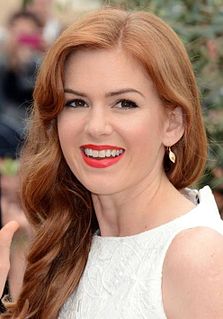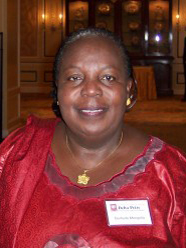A Quote by Kevin Starr
I always thought the women of my age group got short shrift because the women's liberation movement came slightly after. You look at the yearbooks and you see the future homemakers of America - hurray for that - but you also see them in the engineers club. You see minority kids as student body presidents at a time when everyone was supposed to be terminally racist. Yearbooks are genres; they're also folk art, folk documentation.
Related Quotes
The most obvious ones inspiring me are probably women in political life. There are also many women in artistic endeavors, but if they're painters, you don't necessarily see them, or if they're actors, you see the role they're playing. In political life, you see women of enormous courage and smarts and humor, and that releases the talent, especially in little girls who are watching.
When I look in the mirror, I am slightly reminded of self-portraits by Durer and by Rembrandt, because they both show a degree of introspection. I see some element of disappointment; I see a sense of humour, but also something that is faintly ridiculous; and I see somebody who is frightened of being found out and thought lightweight.
I remember the first time I was booked into a jazz club. I was scared to death. I'm not a jazz artist. So I got to the club and spotted this big poster saying, 'Richie Havens, folk jazz artist.' Then I'd go to a rock club and I'm billed as a 'folk rock performer' and in the blues clubs I'd be a 'folk blues entertainer.'
When people are always telling you that you have to have a lot of women, women are very important, there's a chance that you might actually begin to observe them on a more fundamental level. Then you get so much focus that one day you might actually see. Dominican men are told to look at women all the time, but they're definitely not told to see them.
I'm always astounded at the way we automatically look at what divides and separates us. We never look at what people have in common. If you see it, black and white people, both sides look to see the differences, they don't look at what they have together. Men and women, and old and young, and so on. And this is a disease of the mind, the way I see it. Because in actual fact, men and women have much more in common than they are separated.
I had a fantasy as a child that I might be a writer someday. I always thought that meant you went to New York or Paris. But after that intense summer, I never thought that I wanted to live any place but Chicago. It also made me see what the stakes were in the civil rights movement. And it made me see what real hatred was like and the forms that it took. But it also made me understand how powerless ordinary people feel in their lives.
I don't see the women as a problem. The women are doing all they can do. They're heading up households; they're single parents; they're breadwinners; they're the 'mamas,' they're the 'daddies,' they're the 'uncles.' They take the kids to school; they take them to doctors, you know? They take them to games. I see it all the time.
Sure, kids want to read whatever is the hot book, and of course they want to read fantasy and any kind of speculative fiction, but they also like to read stories with kids that look just like them, that have the same problems as them. And I've noticed that what they particularly want to see is to see those characters prevail. So they don't want sanitized situations. They want stories to be raw, they want them to be gritty, but they also do want to see the hope at the end of the story.
I don't see people. I don't see men and women at all. When I see them, I see... their mothers and fathers. I see how old they are inside. Like when I look at the president, or anybody in a record company, or a store owner, I may see a little boy behind the counter with the face of an old man. And that's who I talk to.
Women must see that there can be no liberation for them and no solution to the ecological crisis within a society whose fundamental model of relationships continues to be one of domination. They must unite the demands of the women's movement with those of the ecological movement to envision a radical reshaping of the basic socioeconomic relations and the underlying values of this [modern industrial] society.
I'm coming to a sense of a women's movement which was extraordinarily important in the struggle for freedom in Ireland and immediately afterwards, but then some of those women who were involved in the movement got involved in representative positions and perhaps some of them got a bit distanced from the grassroots issues. But also the women's movement itself seemed to say, "No, we've got our own government, our own parties in power" and they sat back.








































